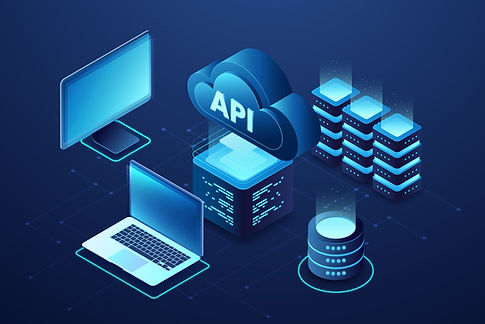API Testing Services
For a Trusted Experience

Unlike traditional UI testing, API tests run faster,
go deeper, and scale better, making them a critical
part of any high-velocity development pipeline.
We help engineering teams catch issues early,
automate test coverage, and deploy with confidence, while reducing the time and cost of rework.

Why API Testing Matters?
Our Approach at CalibreCode
We take a strategic, hands-on approach to API testing, starting with a deep understanding of your product and scaling all the way through to post-deployment validation.
01
Understanding Your API Ecosystem and Objectives
We begin by working closely with your team to understand your API architecture, business goals, integration landscape and critical success factors. This discovery process helps us identify key risks, edge cases, and key workflows for focused validation.
02
Designing a Comprehensive Test Strategy
Based on this insight, we develop a targeted test strategy that covers functionality, security, performance, and compatibility, ensuring that every endpoint and workflow is thoroughly validated against real-world scenarios.
03
Embedding Test Automation Early
We integrate automated tests early in your development lifecycle to enable fast, reliable validation with every build. This ensures fast feedback loops without slowing down your delivery pace.
04
Security Built In from the Start
To ensure your APIs perform under pressure, we replicate production-like traffic patterns and transaction flows, surfacing potential bottlenecks before they impact end users.
05
Simulating Real-World Load and Usage
Our security-first mindset includes vulnerability assessments and authentication validation from the outset, reducing your exposure to breaches, data leaks, and misconfigurations.
06
Actionable Insights and Proactive Monitoring
We deliver clear, prioritised test reports and recommendations, and help set up monitoring strategies so you can catch and resolve issues before they escalate in production.
Our Capabilities in API Testing Services
With this strong foundation in place, we apply our expertise across a full spectrum of API testing services designed to support complex systems and high-velocity teams.
Functional API
Testing
Validates endpoints across varied payloads and workflows for accuracy, business logic alignment, and failure handling.
Performance & Load
Testing
Simulates real-world spikes and concurrency to uncover latency, timeouts, and throughput limits.
REST, SOAP & Web Service
Testing
Supports modern microservices, legacy systems, and hybrid architectures, ensuring clean contracts and backwards compatibility.
API Security
Testing
Covers open-world-wide application security project(OWASP) risks, token validation, exposure surfaces, and improper access control early and often.
Third-Party Integration Testing
Verifies data exchange, error handling, and resilience across CRMs, payment gateways, cloud platforms, and external APIs.
Automated API Testing & CI/CD Integration
We implement maintainable automated tests and integrate them into your CI/CD for fast, repeatable, shift-left coverage.
Why Choose Our API Testing Services
Faster Releases – Catch defects early and accelerate go-to-market timelines.
High Reliability – Ensure stable API performance under heavy load and complex interactions.
Security Assurance – Identify authentication flaws and misconfigurations before they become threats.
Fewer Production Issues – Prevent costly bugs and integration failures from reaching users.
Domain Expertise – Tailored QA for e-commerce, IoT, Booking platforms, and high-scale systems.
Developer-First Approach – Clear documentation and mock services for seamless early testing.
Tools Used




